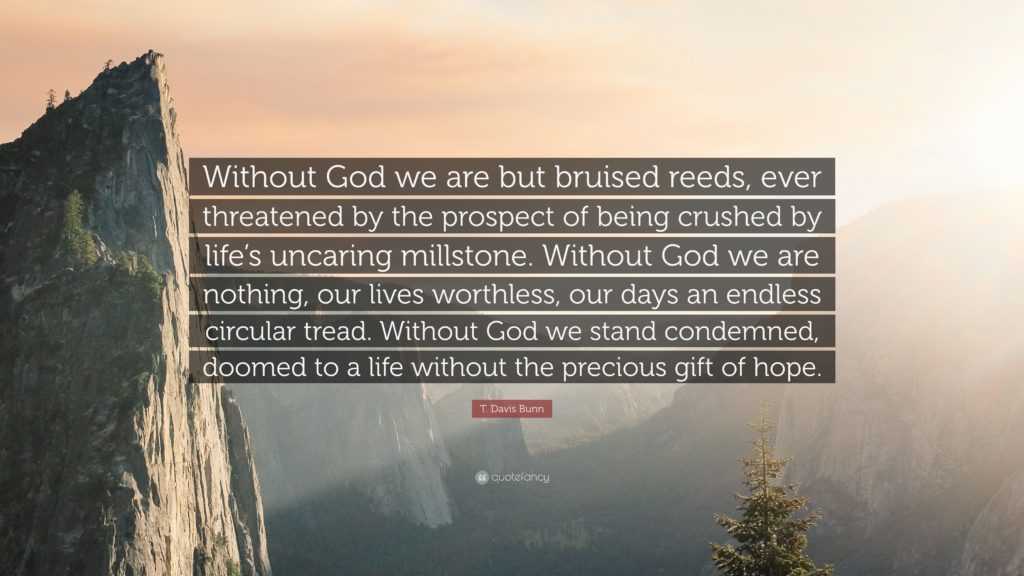[Greek] συντρίβω (syntribō), [Latin] contrere, [Latin] frangere, [Latin] fricare: to fracture, to have friction, to break into pieces, to be broken-hearted (contrite), to crush, to bruise, to trample upon, to shatter, to trample underfoot, to rub together, to wear away; Mt.12:20, Mk.5:4, Mk.114:3, Lk.4:18, Lk.9:39, Jn.19:36, Rom.16:20, Rev.2:27

Background information:
Greek Hellenism: This term, meaning to rub (-tribo) together (syn-), refers to grinding, rubbing, crushing, breaking, and destroying. Literal uses refer to ointments, medication, bones, limbs, and spears. More nuanced and metaphorical uses refer to fear, despair, anxiety, remorse, and misfortune. Oftentimes, these nuanced uses occur in the social, political, and psychological spheres.
Polybius’ Histories 6.58 states “Though the Romans had been severely defeated in the battles, and though they were at the time deprived of roughly speaking, all their allies, they neither yielded so far to misfortune.” Aeschines’ Against Timarchus 1.59 states “First they smashed the implements of his trade and tossed them into the street—sundry dice and dice-boxed and his gaming utensils in general.” Polybius’ Histories 5.47.1 states “But as soon as they got near Xenoetas’ force, their ignorance of the ground proved fatal to them without any enemy to attack them, for they got immersed by their own weight.” Euripides’ Cyclops 705 states “For I shall break off a piece of this crag, hurl it, crush you, companions and all, to bits.”
Old Testament: This term is related to several Hebrew terms, having the basic sense of breaking. These meanings include the breaking of objects, the smashing of ships, the crushing of bodies, broken pride, and broken-heartedness. Destruction can range from breaking to radical obliteration. Other nuanced meanings included stumbling, being humbled, and bowing down. The unbroken Passover lamb has important New Testament implications. The breaking of all aspects of war lead to a universal kingdom of peace. God provides consolation to the righteous and broken-hearted.
You shall not break any of its bones (Exo.12:46). A clay vessel in which it has been cooked shall thereafter be broken (Lev.6:21). Rather you must demolish them (gods) and smash their sacred pillars (Exo.23:24). Over the great destruction which overwhelms the virgin daughter of my people (Jer.14:17). God, do spurn a broken, humbled heart (Psa.51:19). Insult has broken my heart, and I am weak (Psa.69:21). Many are the troubles of the just, but the Lord delivers from them all (Psa.34:19). I am broken by the ruin of the daughter of my people (Jer.8:21). When I set limits for it and fastened the bar of its door (Job.38:10).
New Testament: This term means to break (into pieces), to be bruised, to be brokenhearted (discouraged), to crush (trample), and to be overwhelmed. The Messiah is a bruised reed who will not break. Like the Old Testament Passover lamb, Jesus’ bones will not be broken. The God of peace will quickly crush Satan under your feet. Unclean spirits often overwhelm those who are possessed. The possessed man broke his chains. A woman breaks an alabaster jar of oil perfumed oil. She pours it on Jesus’ head.
Scripture:
“The Spirit of the Lord is upon me, because He has anointed Me to bring glad tiding to the poor. He has sent Me to proclaim liberty to captives and recovery of sight to the blind, to let the oppressed go free.” Lk.4:18
Jesus is the bruised reed will ultimately achieve victory. He will provide solace to the brokenhearted. This makes reference to Isa.61:1
“For this happened so that the scripture passage might be fulfilled; ‘Not a bone of it will be broken.’”Jn.19:36
Breaking the bones of the crucified victim served to hasten the death and the agony of the victim. The Passover regulations stated that the Passover lamb’s legs must not be broken. Jesus is the new Passover lamb.
“Then the God of peace will quickly crush Satan under your feet. The grace of our Lord Jesus be with you.” Rom.16:20
Paul was warning his congregation about those who cause dissension and obstacles. The false teachers are also regarded as the servants of Satan. This also alludes to Gen.3:15 where the Woman will crush Satan.
Conclusion:
Fracture, friction, contrite
The basic etymological sense of rubbing together indicates the sense of friction, difficulty, or destruction. It is interesting to see how this term can be used in a more nuanced way in the political and sociological spheres. Literal breaking can been understood in many situations.
The Old Testament introduces the notion of the brokenhearted and despondent. Broken-heartedness indicates an interior despair and helplessness. The contrite are those who express guilt and remorse. God provides consolation to the brokenhearted and contrite. It was an important Passover regulation that the Passover lamb’s bones were not to be broken. This foreshadows Jesus as an unbroken Passover lamb. As Jesus died on the cross, He said “It is finished.” Jesus finishes the Passover on the cross.
Jesus is the bruised reed who ultimately achieves victory on the cross. The demons often can overwhelm the possessed person, but the demons fear Jesus. The woman, who broke the alabaster jar, received great ridicule from the Jewish host. However, Jesus highly praises the woman for anointing His head.
Hamlet
“To die—to sleep,
To sleep, perchance to dream—ay, there’s the rub.
For in that sleep of death what dreams may come
When we have shuffled of this mortal coil,
Must give us pause.”
(Hamlet faces a difficulty in his decision to commit suicide.)
Fare thee well. There’s the rub. Parting is such sweet sorrow (until the next post)!
